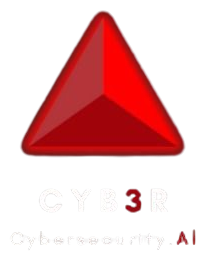Diploma in SOC & Blue Team OPS
The Diploma in SOC and Blue Team Operations is a one-year program designed to provide the knowledge and skills required to work in a Security Operations Center (SOC) and manage blue team defense operations. This course covers incident detection, response, vulnerability management, threat intelligence, and the use of SIEM systems. Students will learn how to safeguard an organization’s network and infrastructure from cyber threats, as well as how to investigate breaches when they occur. By the end of the course, students will be equipped with practical skills to work as SOC analysts or blue team operators in any organization’s cybersecurity infrastructure.
Course Duration:
1 Year
What You’ll Learn:
Introduction to Security Operations Centers (SOC): Understand the role of a SOC in protecting an organization’s infrastructure and responding to cyber threats.
Incident Detection and Response: Learn the process of detecting, analyzing, and responding to security incidents in real-time.
Threat Intelligence: Study how to gather, analyze, and act on intelligence about cyber threats to improve incident response.
Log Management and Analysis: Master techniques for collecting, analyzing, and responding to logs to detect anomalies and attacks.
SIEM Systems: Gain hands-on experience with Security Information and Event Management (SIEM) tools like Splunk and IBM QRadar.
Network Defense: Understand network security, intrusion detection, and firewall management to protect systems from attacks.
Blue Team Strategies: Develop strategies for defending an organization’s network and data, as well as how to respond to breaches.
Vulnerability Management: Learn how to identify, evaluate, and patch vulnerabilities to reduce potential threats.
Forensics for Blue Teams: Understand how digital forensics plays a role in SOC operations for investigating security breaches.
Automation and Orchestration in SOC: Explore automation techniques for incident response, and how orchestration improves the efficiency of SOC operations.
Course Curriculum:
Section 1: Introduction to SOC and Blue Team Operations
Section 2: Security Incident Detection and Response
Section 3: Threat Intelligence and Analysis
Section 4: Log Management and Analysis
Section 5: SIEM Tools and Configuration
Section 6: Network Defense and Intrusion Detection
Section 7: Blue Team Strategies and Operations
Section 8: Vulnerability Management and Patching
Section 9: Forensics for SOC
Section 10: Automation and Orchestration in SOC
Course Features:
Hands-on Labs: Practical labs for working with real-world SOC tools and technologies to detect, analyze, and respond to threats.
Access to Leading SOC Tools: Experience industry-standard tools like Splunk, Kibana, and IBM QRadar.
Expert Instructors: Learn from professionals with hands-on experience in SOC operations and blue team strategies.
Certification: Receive a diploma on successful completion, demonstrating your expertise in SOC and blue team operations.
Project-Based Learning: Work on real-world security incidents, and develop incident response plans and solutions.
Job Placement Assistance: Get support in finding career opportunities in the cybersecurity field.
Who is This Course For?
Aspiring SOC Analysts: Individuals seeking a career in security operations or incident response.
Cybersecurity Professionals: IT and network security professionals looking to specialize in SOC and blue team operations.
IT Administrators and Network Engineers: Those involved in maintaining and securing networks who want to expand their knowledge in cybersecurity.
Blue Team Enthusiasts: Security enthusiasts who want to focus on defending systems from cyber threats.
Incident Responders: Professionals who wish to enhance their skills in detecting and responding to security incidents.
Skills You’ll Gain:
SOC Operations: Understand the roles and responsibilities within a SOC, and the tools and processes used for real-time monitoring and incident response.
Incident Detection and Response: Gain the ability to identify and react to security incidents using automated tools and manual investigation.
Threat Intelligence: Master the collection and analysis of threat data to prevent and respond to attacks.
Log Analysis and SIEM Configuration: Develop the skills to work with SIEM systems and analyze logs for signs of security incidents.
Network Defense: Gain proficiency in securing networks and defending against intrusion attempts.
Vulnerability Management: Learn how to assess and mitigate vulnerabilities in an organization’s infrastructure.
Forensics Skills for SOC: Understand how to use forensics techniques for investigating security breaches and incidents.
Automation for Incident Response: Learn to automate processes for a faster, more efficient response to incidents.
Important Note:
Prerequisites: A basic understanding of networking, operating systems, and cybersecurity principles is recommended. Previous experience in IT support or network administration is helpful.
Hands-On Work: Significant practical experience with SOC tools and real-world scenarios will be part of the course.
Legal and Compliance Knowledge: A strong focus on the ethical and legal aspects of cybersecurity operations and incident response.
